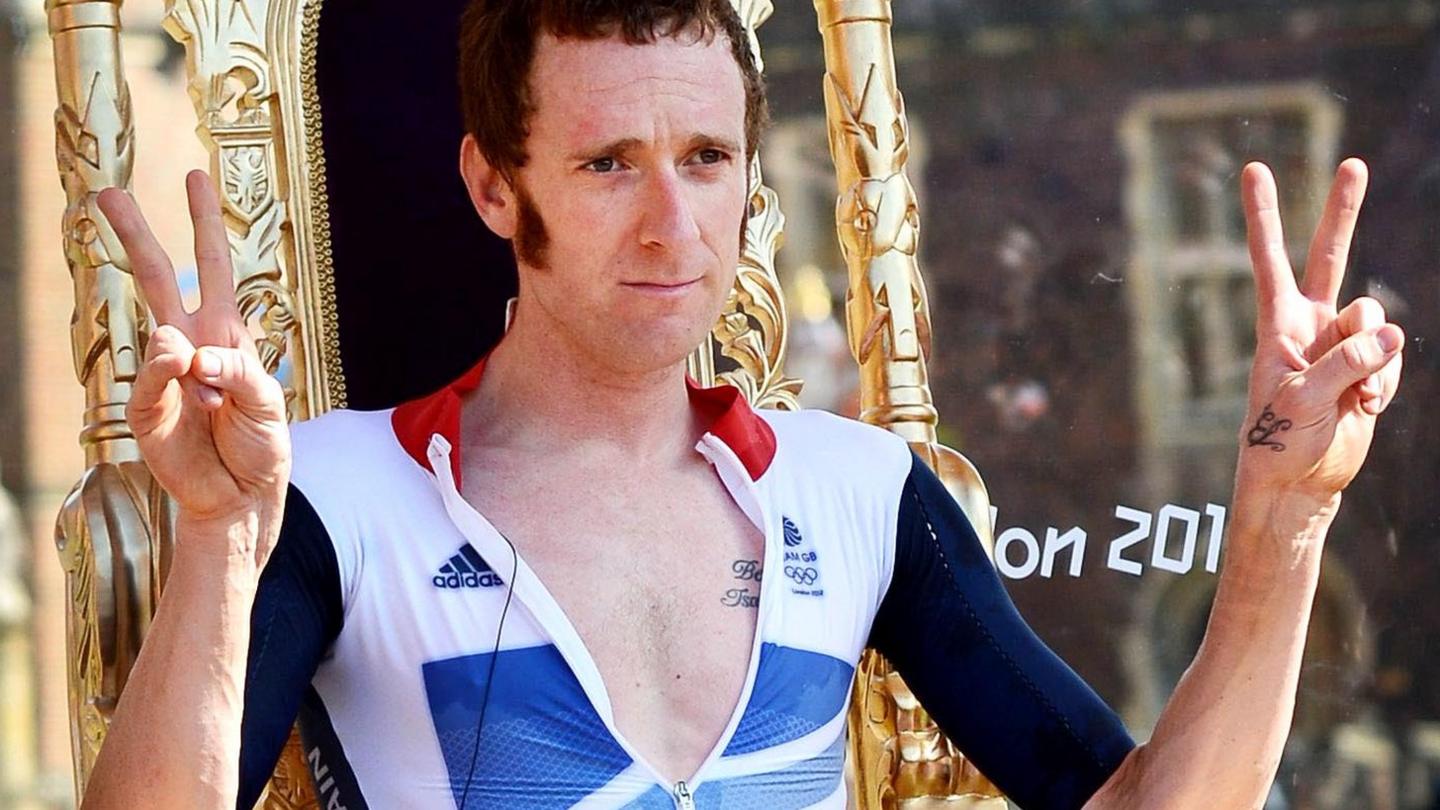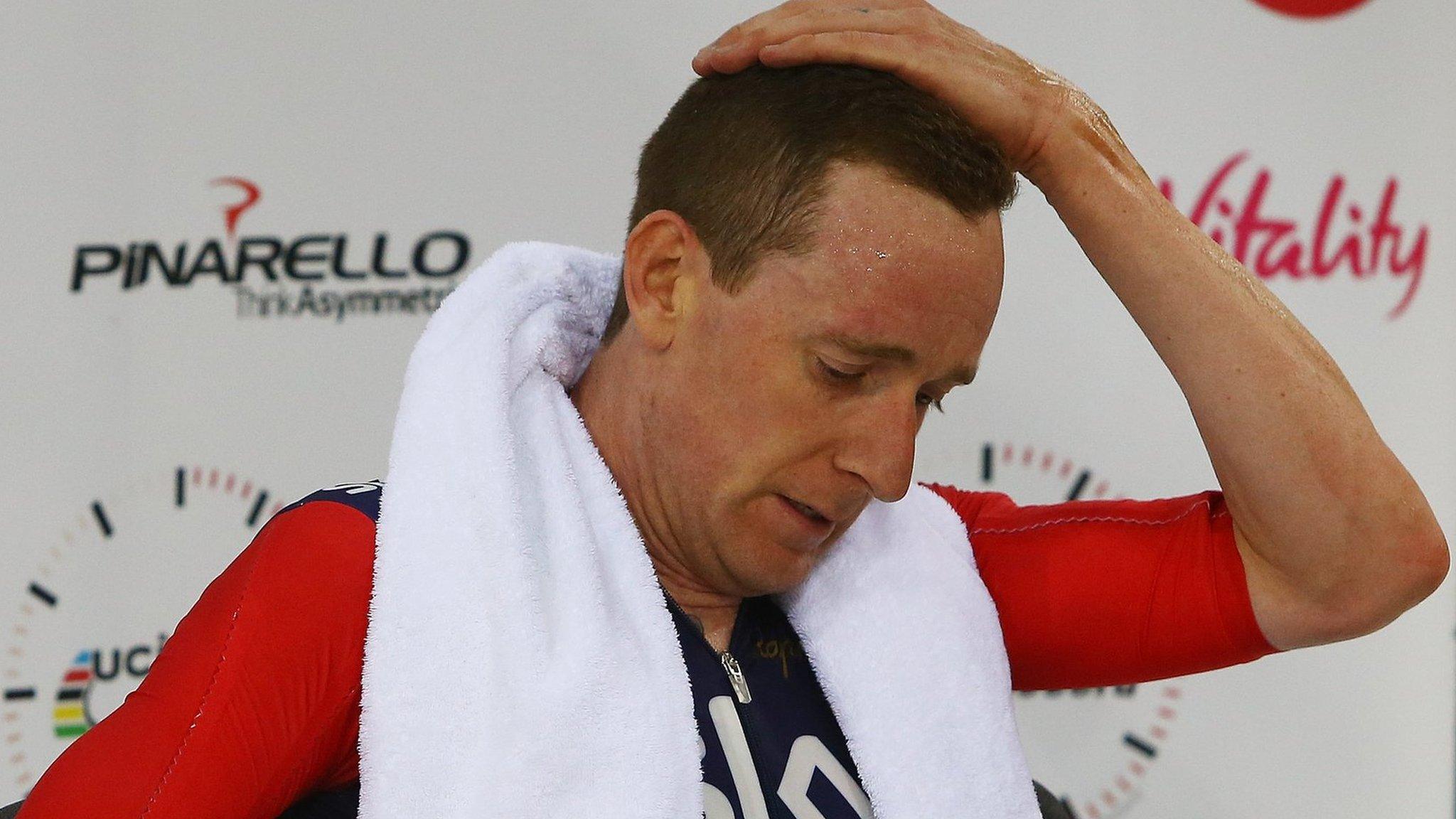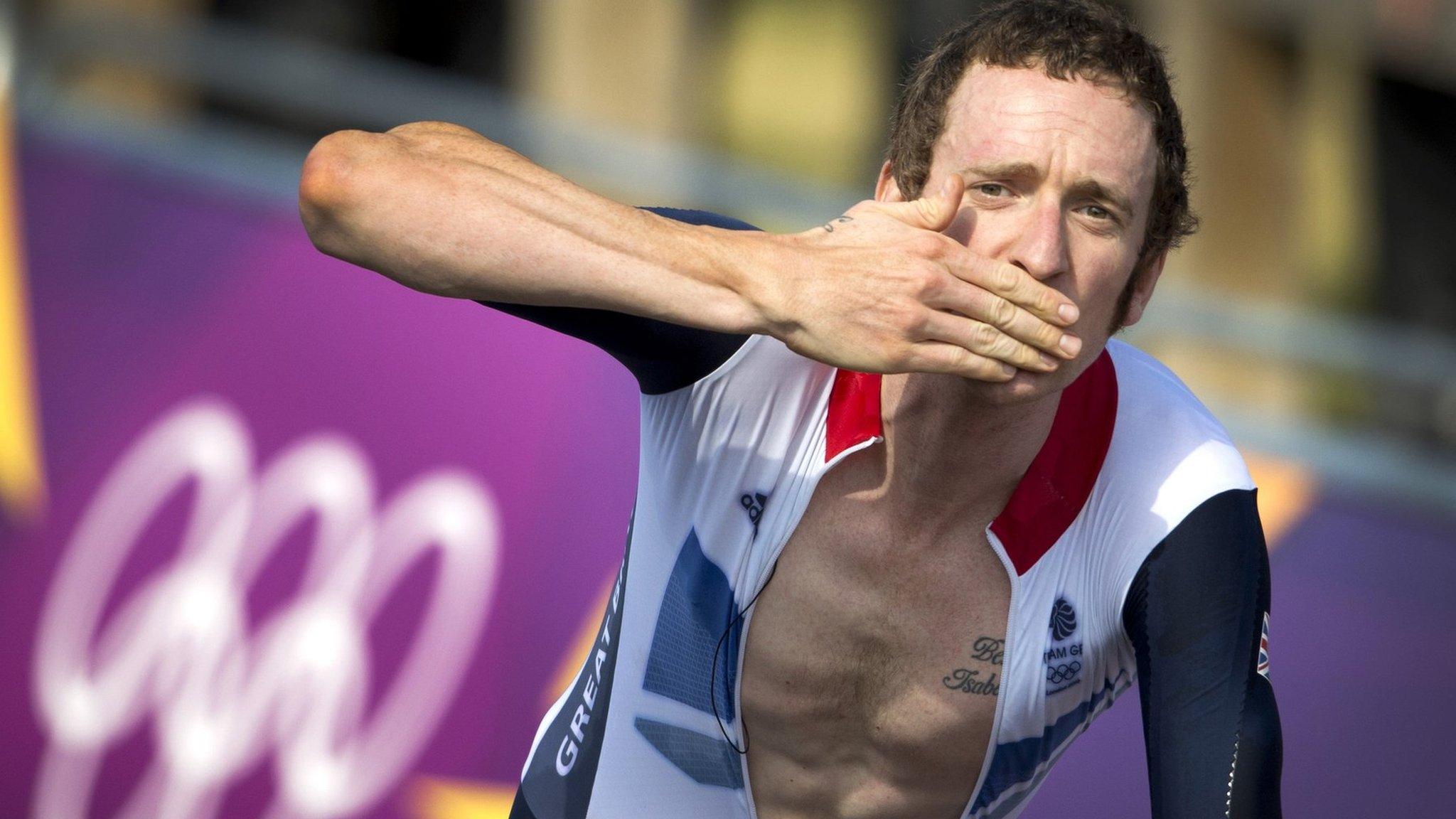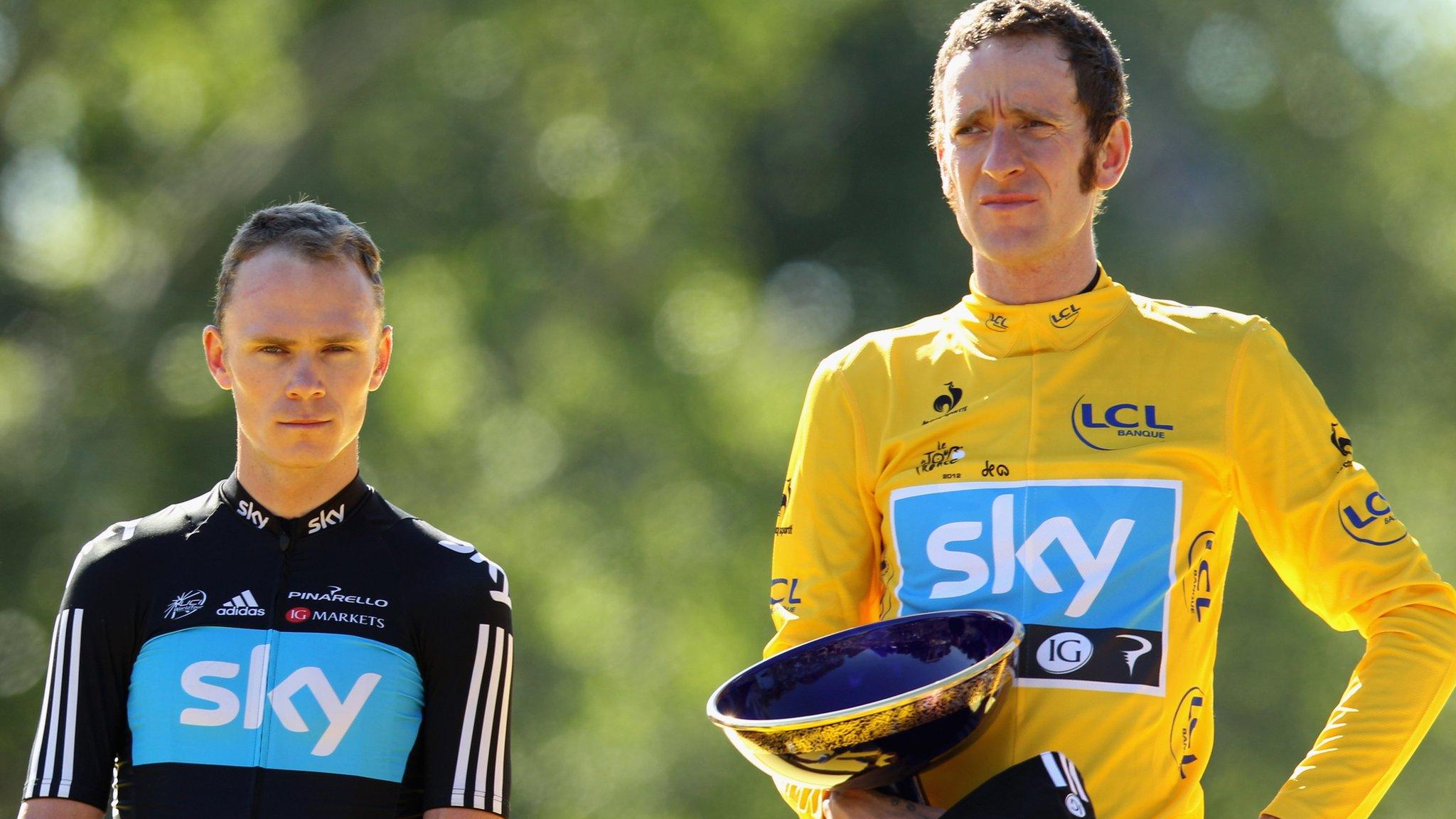Chris Froome rejected TUE on 'moral grounds'
- Published
Froome calls for tighter TUE regulations
Three-time Tour de France winner Chris Froome rejected a therapeutic use exemption to treat a medical condition during his 2015 win on moral grounds.
The Briton, who rides for Team Sky, was granted TUEs twice previously, in May 2013 and April 2014, to treat asthma.
Froome was told he had a condition that required a TUE during the 2015 Tour.
However, he said: "I didn't feel having a TUE in the last week of the Tour was something I was prepared to do. It did not sit well morally with me."
In 2013 Froome's TUE allowed him to use prednisolone for his asthma for a week before winning the Criterium du Dauphine - a week-long race in June which is usually a good indicator of form leading into July's Tour de France - while in 2014 he took it for a week during the Tour de Romandie, as he defended his title.
Britain's most decorated Olympian Sir Bradley Wiggins, who retired in December, and Team Sky have come under scrutiny for Wiggins' use of TUEs and the contents of a medical package he received in 2011, after his confidential medical information was leaked by hackers 'Fancy Bears'.
TUEs allow the use of otherwise banned substances if athletes have a genuine medical need, and Wiggins, an asthma sufferer, said he sought them to "put himself back on a level playing field".
Froome told BBC Sport it was "healthy" to be asking questions about why Wiggins was granted a TUE to take anti-inflammatory drug triamcinolone before the 2011 Tour de France, his 2012 Tour win and the 2013 Giro d'Italia.
There is no suggestion that either Froome, Wiggins, British Cycling or Team Sky have broken any rules.
British Cycling has been unable to provide paperwork to prove the contents of a medical package delivered to Sir Bradley Wiggins in France in 2011, according to MP Damian Collins.
Team Sky boss Sir Dave Brailsford told MPs earlier in December the package used by Wiggins contained a decongestant but did not have supporting documentary evidence.
Froome, who says he is aiming to win a fourth Tour de France title this year, added: "The fact that we're having that debate about authenticity means there's a problem with the system.
"I think Wada [the World Anti-Doping Agency] need to tighten their regulations around TUEs, so they're not something that we question, their legitimacy.
"It's not good for sport in general," he added. "The fact that we're discussing the validity of results, that brings it back to the authorities, it is something they need to tighten up on so that there aren't questions being asked anymore."
- Published28 December 2016

- Published29 December 2016

- Published28 December 2016

- Published18 October 2016
